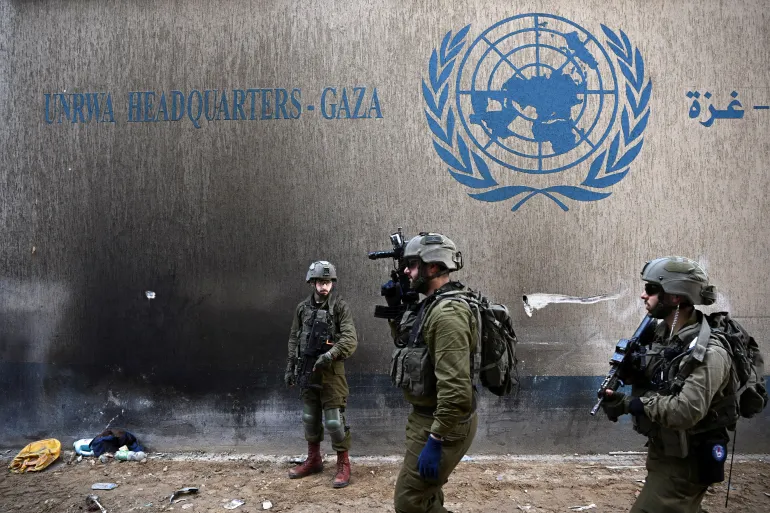Israel’s parliament, the Knesset, voted on October 28 to label the United Nations Relief and Works Agency for Palestine Refugees (UNRWA) a “terrorist organization,” escalating the stakes in Israel’s long-standing struggle with the United Nations. The legislation bars UNRWA from operating in occupied territories and revokes its diplomatic immunity based on unsubstantiated allegations that the agency is linked to terrorism. This measure expels critical services from millions of Palestinian refugees staying in Gaza and the West Bank. The UN and human rights activists have extensively condemned the Israeli government.
Commissioner-General of UNRWA, Philippe Lazzarini, while delivering a speech to the United Nations General Assembly, stated that the recent measures undertaken by Israel are a violation of international law, mainly because they contradict the duties that Israel owes to the Charter of the United Nations. He said that it is now almost impossible for UNRWA to execute its mandate, which is essential to assist Palestine refugees.
Escalating Military and Diplomatic Campaigns
Attacks on UNRWA facilities have escalated, leading to over 230 casualties among staff in Gaza. This move represents an attempt to destroy what Israel perceives to be legal obstacles to its territorial ambitions. Critics say the move to dismantle UNRWA, which operates under the auspices of international law, is part of a broader strategy to erase Palestinian legal claims and normalize Israel’s settlements in Gaza and the West Bank.
Israel recently confiscated Palestinian land hosting the UNRWA headquarters, an explicit declaration of its intention to uproot the agency entirely. In its place, Israel intends to set up a new settlement with 1,400 units, an act that is considered one of the boldest moves to ensure Israeli control in Palestinian territories. Proponents of Palestinian rights argue that these acts represent Israel’s long-standing campaign to silence institutions that protect the right of return of Palestinians and highlight Palestinian claims to the land.
It has also pitted it in direct conflict with the International Court of Justice. When South Africa requested, the ICJ, in March, ruled that Israel must allow humanitarian access and desist from acts that aggravate the Palestinian crisis, which it termed as genocidal. However, Israel reacted by increasing its legislative and military actions against UNRWA instead of adopting the ICJ ruling as its own. This worsened the situation between Israel and the United Nations and generated controversy over its commitment to international agreements.
Meanwhile, Israeli leaders continue their public attacks on the UN. The prime minister of Israel, Benjamin Netanyahu, recently called the UN a “house of darkness.” The government has also denied UN Secretary-General Antonio Guterres entry into the country. Many view this as a sign of the more significant trend of Israel deviating from international norms and obligations.
Calls for Suspension of UN
Given Israel’s continued and unapologetic transgression of international law, some commentators call for UN membership suspension of Israel in line with the UN’s previous action in suspending the membership of South Africa on its apartheid policies in 1974. This should give the world body sufficient impetus to reinforce human rights commitment, thus bringing home the lesson that violations of international law incur real, serious consequences.
The more aggressive measures Israel makes against UNRWA heighten demands for accountability. The argument goes that what Israel does in its territory, as well as in territories occupied by it, does not serve the ideals of the United Nations, and it should reconsider the role assigned to Israel in the international world until Israel upholds international humanitarian law.















